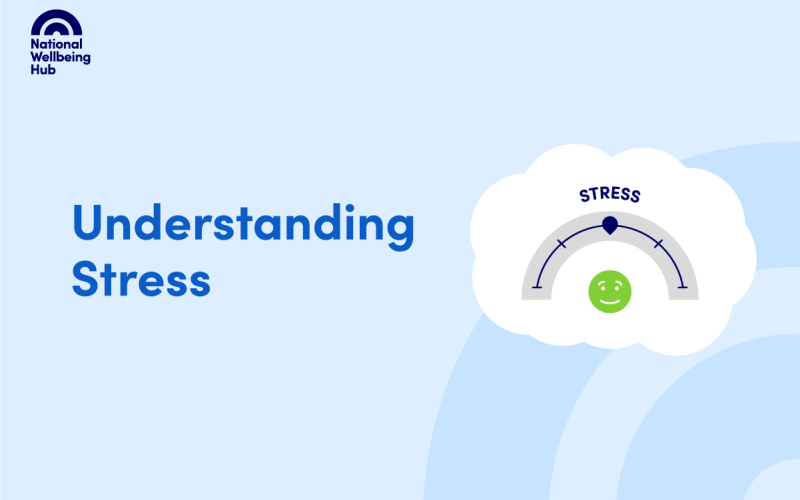Student Wellbeing – looking after yourself

Being a student is an exciting time – you might be in a new city, meeting new people, having new experiences, and learning about things that you’re really interested in. All of that novelty is there to be embraced, but sometimes, new experiences can leave us feeling a little uncertain. You are also studying for a career in health or social care at a time when both sectors are under more pressure than ever before, therefore it’s hardly surprising that you might be feeling a bit overwhelmed.
Feeling anxious?
A lot of people find themselves feeling anxious during their studies. Feelings of anxiety can be influenced by a number of factors such as uncertainty or not feeling in control. These are common features of university life, but there are things you can do to feel that bit more in control. Firstly, try to find out as much as you can about what is going to be expected of you over the next academic year. Get a feel for how and when your work will be assessed, and how many lectures, seminars, or tutorials you’re expected to attend. If you’re going on placement, find out what is expected of you both in advance and during. If you’re worried about a particular type of assessment (maybe writing essays isn’t your strongest suit or you’re nervous about giving presentations) find out what additional academic support is available on your course. Most universities will provide you with a personal tutor (although they may use a different name for this), this will be a named person who can provide you with guidance for personal and academic issues you may be experiencing.
Lifestyle factors such as drinking and drug taking can exacerbate anxiety, so try not to get carried away with these. If you do feel that you’re drinking a bit too much, have a look at these Tips for Managing Alcohol for suggestions to help you cut down. If you find yourself feeling anxious about any aspect of student life, or life in general for that matter, you might benefit from trying the Daylight app, which you can access here. Daylight provides a science-backed anxiety improvement programme that can help you control feelings of worry and anxiety.
Experiencing low mood?
It’s understandable that you might be feeling a little bit low. It may be your first experience of living away from home, you might be missing your family and friends from home. It might be that what you were expecting from being a student isn’t the same in reality. You may be finding it difficult adjusting to all the responsibilities of being independent whilst studying.
It’s easy to get caught up in all that’s going on around you, and it’s understandable to be feeling like you don’t want to miss out on anything. Try to keep a bit of time aside for yourself though. We get different anti-stress and anti-depressant chemicals released by completing different types of activities. Make sure you’re getting a balance in the type of activities that you are doing; Achievement, Connection, and Enjoyment activities, try to get a mix of all three throughout the day. You might be fooled into thinking that university is all about achievement, but it’s not. It’s equally important to be connecting with people, new and old, and enjoying yourself. At the end of the day, the subject you’ve chosen to study may form the core of your future vocation – making sure you enjoy it is just as important as being good at it.
Our mood can be affected by a lot of factors but we know that eating healthily and regular exercise have a significant impact. Having a balanced diet not only brings physical health benefits but is also good for your mental wellbeing. Eating well on a budget isn’t always easy though. Learning to cook will help make your funds stretch as well as ensuring that you have nutritious and tasty meals. The internet is replete with cheap healthy recipe ideas, do some digging and see what you can find. It’s also worth remembering that your local shops and supermarkets will all reduce produce as it approaches it’s best before date. This will get done at different times in different shops, just keep an eye out for what time of day the yellow labels start to appear.
Likewise, getting a bit of regular exercise will bring mental, as well as physical health benefits. Try to exercise several times a week or daily where possible. It doesn’t need to be anything too strenuous, even just a brisk walk or short run can make a difference. You may find that your university has sports/exercise clubs which are of interest. This will also help you to develop friendships. For some gentle, home or office-based exercise, head over to our Podcasts & Webinars page, where you’ll find a guided movement session from Scottish Ballet, and an Iyengar yoga session.
Staying connected to others is really important for maintaining good mental wellbeing, whether that’s keeping in touch with family and old friends, or meeting new people and making new connections. Being away from home can be an isolating experience, but if the pandemic has taught us anything, it’s that distance isn’t necessarily an obstacle to keeping in touch. Make use of everyone’s familiarity with video calls.
Although you might be away from people you know, keep in mind that there are going to be a lot of other people in the same position as you, all looking to make new connections. Look into what clubs and associations your Uni has which might be of interest to you, where you can connect with others with similar interests. And finally, engage with your course – you’re going to be spending a lot of time in class with the same groups of people. The more you invest in your classes the easier it will be to make connections with your fellow students.
If you find that you are feeling low, you might benefit from the Silvercloud app, which you can access from here. Silvercloud is a structured programme based on CBT, that can help you manage your mental health, resilience, stress, and sleep. If you need to talk to someone about your mental health, most universities offer counselling services, find out what yours can offer.

Welcome to the Hub. We hope you’ll find the support you’re looking for. To help us improve the site and make it relevant to you, please take a minute to answer a few quick questions. Thank you.
Give us feedback







